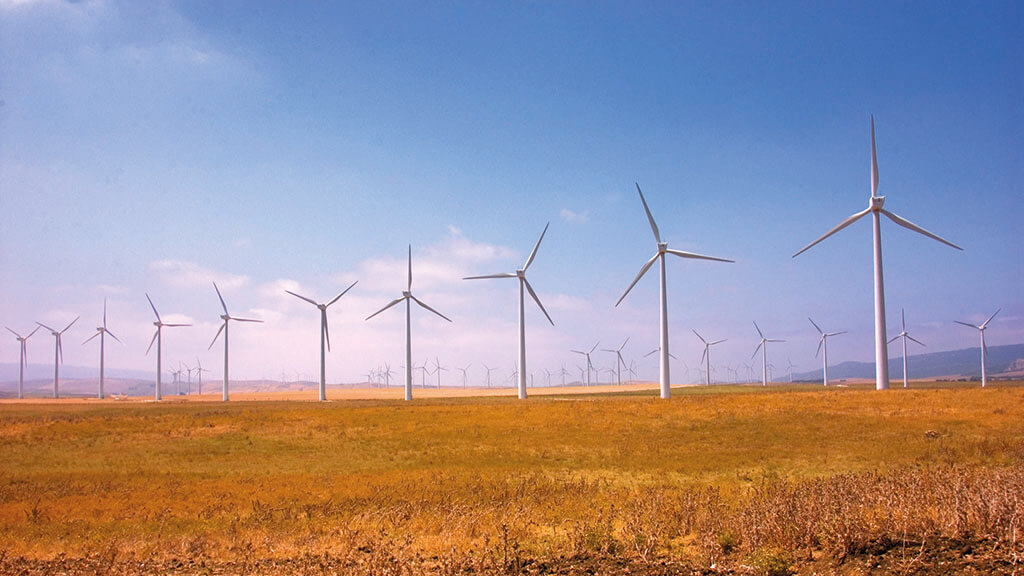By JASON AGNEW
WITH just half the year gone, the National Grid has confidently predicted that 2019 will be the year when zero-carbon energy overtakes fossil fuels as the largest source of electricity.
Just 10 years ago, a third of the country’s electricity was generated in coal-fuelled plants, but that figure has this year been reduced three percent. Renewable energy has, in the same period, has increased its supply tenfold, from two percent to 20.
National Grid has described this as a “landmark tipping point” and a historic achievement as the UK aims to stay on course to becoming a net-zero carbon economy by 2050. John Pettigrew, the chief executive, called it “incredible progress”. Will 2019 really be the year zero-carbon power beats fossil fuel-fired generation? Pettigrew said the claim wouldn’t be made without confidence in the figures.

A mild winter meant less energy consumption than usual, and this — plus particularly strong winds — meant that Britain’s carbon intensity (the amount of carbon produced for every kilowatt of electricity) fell substantially as the gas power plants did the heavy lifting, and produced 50 percent less carbon emissions than coal. The combination of warmer temperatures and the increased æolian activity (from the Greek god Aeolus, keeper of the winds) enabled the UK to achieve a record stretch of consecutive coal-free days earlier this year, lasting until early June.
Chris Skidmore MP, the interim energy minister, predicted that coal would soon “be consigned to the history books”. National Grid is spending around £1.3bn a year to adapt the grid to run on renewable energy, and the government claims that the use of coal will have been completely phased out by 2025.
Doug Parr, Greenpeace UK’s chief scientist, acknowledged that the country is “broadly heading in the right direction” — but questioned whether this was happening quickly enough.
However, there is a flaw in the binding emissions laws: the biomass loophole in global carbon accounting that was not closed in the writing of the Paris rulebook at the UN Climate Summit in Poland last December.

The UK is accelerating plans to replace coal with wood pellets, or biomass, in four of the six largest power plants, located in North Yorkshire and operated by Drax Power. Former coal-fired plants across Europe, especially in Denmark and Belgium, are also converting to the pellets.
Wood pellets are classified by the United Nations as a “renewable resource”. Trees can certainly be replaced by replanting, but researchers estimate it will take 50 to 100 years for saplings planted today to absorb current emissions and achieve a net-neutral goal. No government has so far required that companies plant new trees to replace those cut down.
Studies show that wood pellets produce more heat-trapping carbon dioxide than coal, because it requires proportionally more pellets to produce the same amount of energy as coal. Yet, because wood pellets are classified by the United Nations as a renewable resource — on an equal footing with wind and solar power — the biomass greenhouse emissions from converted power plants are officially deemed carbon neutral.
Some Eastern European countries won’t play ball with lofty targets; at the Poland summit, Czechia, Estonia, and Hungary blocked the plan to commit to zero emissions by 2050. Poland itself doesn’t want to commit to the goal without a burden-sharing mechanism to balance out potentially adverse effects on the economy.
The failure to reach a consensus leaves the EU empty-handed at a UN climate summit planned for September in New York. Although Europe produces less than 10 percent of global greenhouse gas emissions, the UN was keen for the EU to lead by example.
The fact that the bloc of 28 couldn’t agree — and that the 2050 pledge was downgraded to a footnote stating that a “large majority” of EU countries back the 2050 target — is perplexing for climate-change activists. And with a pro-fossil fuel incumbent in the White House, the UK’s achievement might appear less significant.
In the words of the European Greens, “the EU has ignored the urgency once more and put at risk the future of all of us”. Jim Yong Kim , recently retired president of The World Bank, put it bluntly: “We have to wake up to the fierce urgency of the now.”




























